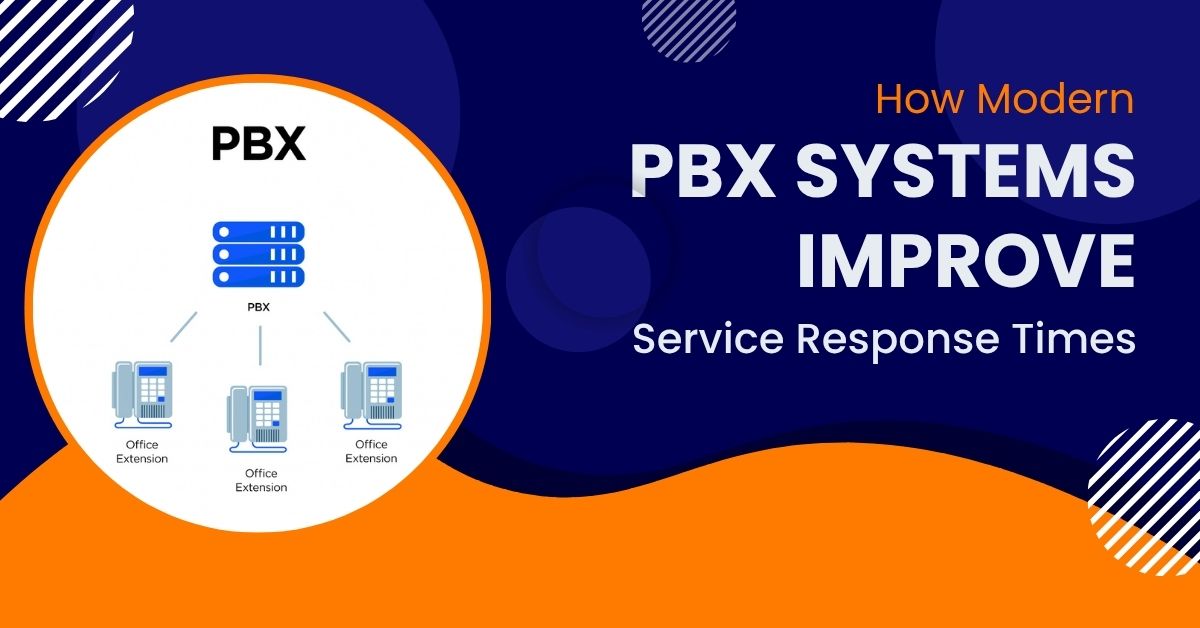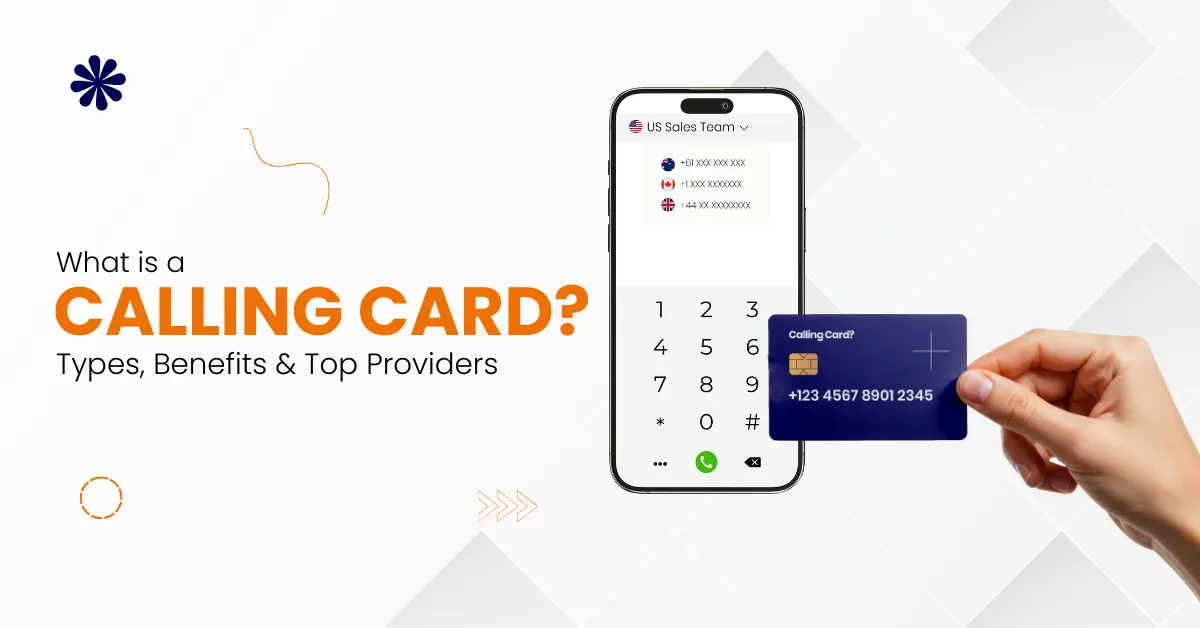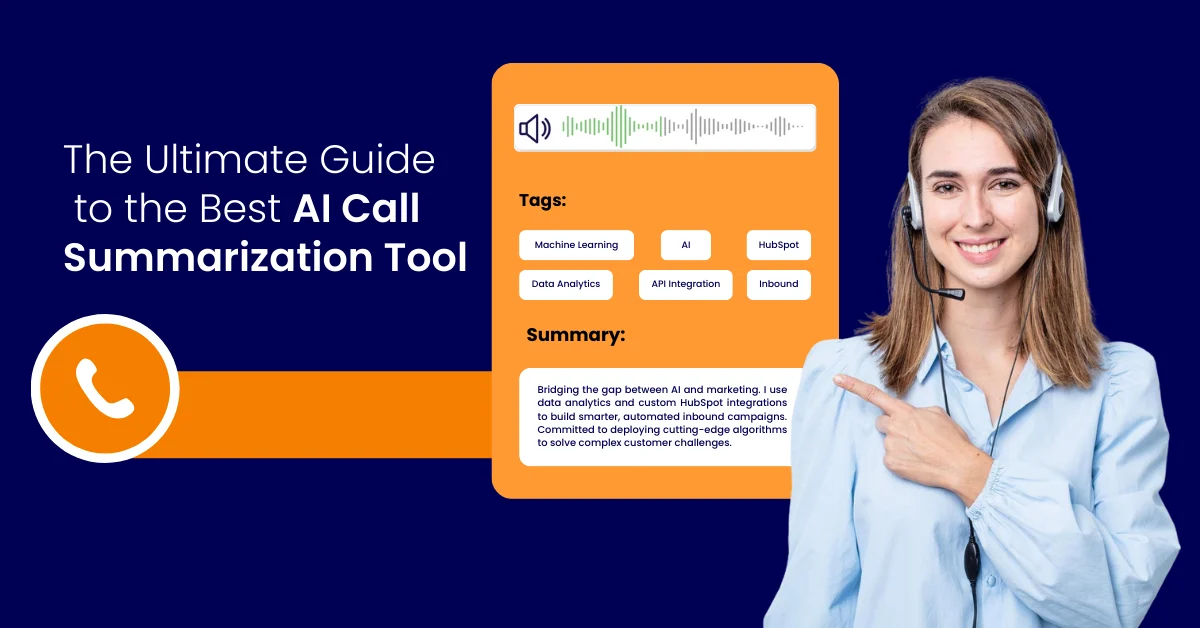How PBX Systems Improve Customer Service: A Modern Guide

4 min read
Table of Contents
PBX systems, or Private Branch Exchange systems, are the core of modern business telephone systems. They handle incoming and outgoing calls inside a company. They also send calls to the right place fast. This keeps communication smooth. It helps customers talk to the right people quickly. When used well, PBX systems cut wait times. They also give tools that make talking easier and faster.
Old phone systems use physical hardware and traditional phone lines. But modern PBX systems use internet connections and new tech like VoIP (Voice over Internet Protocol). This makes a flexible and scalable private telephone network. It lets businesses link many offices. It supports remote teams too. It also works with customer relationship management (CRM) software for a full phone service.
How Do PBX Systems Improve Customer Service?
1. Faster Call Routing and Reduced Wait Times
PBX systems help customer service by routing calls smartly. Features like automated call distribution and interactive voice response (IVR) menus send calls fast. They send calls to the right team or agent. This depends on what the customer needs or the agent’s skills. This cuts hold times and stops frustration. So, customers are happier.
2. Integration with CRM and Business Software
Modern PBX systems link easily with CRM platforms. This gives agents quick access to customer history, likes, and past talks. This helps agents give personal service. They can answer faster and better. This makes the whole customer experience better.
3. Support for Multiple Communication Channels
Today’s PBX systems do more than voice calls. They also support video conferencing, instant messaging, and unified communications platforms. This lets customers use their favorite way to get help. It makes support easier and faster.
4. Real-Time Analytics and Call Monitoring
Managers can watch call data live. They can hear recorded calls too. This helps track call volumes, agent work, and customer talks. This data helps staff better. It also helps train agents. It keeps service quality high. All this helps speed up customer service.
Types of PBX Systems and Their Impact on Customer Service
| PBX Type | Description | Best For |
| Traditional PBX | Uses physical hardware and traditional phone lines. | Businesses with legacy systems |
| IP PBX | Routes voice communications over data networks. | Companies needing mobility and integration |
| Cloud PBX | Hosted online, scalable, no on-site hardware needed. | Growing businesses and remote teams |
| Virtual PBX | Automated call routing without physical hardware. | Small businesses and startups |
| Hybrid PBX | Combines on-premises hardware with cloud features. | Businesses transitioning to cloud |
Key Features of Modern PBX Systems That Enhance Customer Service
- Auto Attendants & IVR: Handle calls automatically and guide customers well.
- Call Routing: Send calls based on agent status, skills, or customer choice.
- CRM Integration: Give agents quick customer info.
- Mobile and Softphone Support: Let agents take calls on phones or computers.
- Omnichannel Communication: Support voice, video, and messaging in one place.
- Call Recording & Analytics: Track and improve service quality.
- Unified Communications: Mix calls, messages, and video for smooth teamwork.
Benefits of Cloud-Based PBX Systems in Customer Service
Cloud PBX systems bring many perks that help customer service response times:
- Scalability: Add or remove phone lines fast to fit business needs.
- Cost Savings: Shift from big hardware costs to easy monthly fees.
- Remote Accessibility: Help agents work from anywhere with internet.
- Maintenance Ease: Providers handle updates and security, cutting IT work.
- Unified Communications: Join many communication ways for better teamwork.
How to Choose the Right PBX System for Your Business
Think about these when picking a PBX system:
- Business Size and Call Volume: Pick one that fits your current and future calls.
- Required Features: Look for CRM links, multi-channel support, analytics, and safety.
- Scalability: Make sure it can grow with you.
- Ease of Use: Choose one easy to manage without much IT help.
- Cost Structure: Check total costs, like setup, upkeep, and upgrades.
- Security: Make sure it has encryption, firewalls, and follows rules.
- Trial Options: Try free tests to see if it fits you.
How PBX Systems Support Remote and Hybrid Work Models
Modern PBX systems use IP telephony and VoIP tech. This lets agents work from anywhere. They use IP phones, softphones, or mobile apps. This keeps service steady no matter where agents are. It fits changing work styles. Video calls and instant messaging help remote teams work well together.
Ensuring Data Security with Modern PBX Systems
Protecting customer data is key. Modern PBX providers use strong security like:
- Encrypting voice calls
- Firewalls and ways to stop attacks
- User checks and access limits
- Regular software updates and fixes
- Following laws like GDPR and HIPAA
These keep bad access out and keep customer trust.
Why PBX Systems Are Essential for Modern Business Communication
PBX systems speed up customer service by making call handling smooth. They give agents the right tools. They support flexible ways to communicate. They help businesses give personal, fast, and steady support. This is key in today’s tough market.
By using a modern PBX system, businesses can boost internal talks. They can cut costs. They can give better customer experiences that build loyalty and help grow.
Ready to enhance your customer service response times?
Frequently Asked Questions (FAQs)
1. How do PBX systems improve customer service?
PBX systems send calls fast to the right agents. They cut wait times. They give tools like CRM links and call data to raise service quality.
2. What is the difference between traditional and cloud PBX systems?
Traditional PBX uses hardware and phone lines. It needs more upkeep and costs more upfront. Cloud PBX runs online. It scales well, is easy to manage, and supports remote work.
3. Can PBX systems support remote employees?
Yes, modern PBX systems work with softphones and mobile apps. Agents can take calls anywhere with internet.
4. Are PBX systems secure for handling customer data?
Modern PBX providers use encryption, firewalls, and follow rules to keep data safe.
5. How do I choose the right PBX system for my business?
Think about your business size, call load, needed features, growth, cost, safety, and try free tests before choosing.
6. What are the key features to look for in a modern PBX system?
Look for features like call routing, auto attendants, CRM integration, call recording, and support for multiple communication channels.
7. How does a hosted PBX system differ from an on-premises PBX?
A hosted PBX is cloud-based and managed by a provider, requiring no on-site hardware. On-premises PBX systems are installed and maintained locally within your business.
8. Can PBX systems integrate with other business software?
Yes, many PBX systems integrate with CRM and other business applications to improve communication efficiency and customer service.
9. How scalable are modern PBX systems?
Modern PBX systems, especially cloud-based ones, are highly scalable, allowing businesses to add or remove lines and users quickly as needed.
10. What types of phones can be used with PBX systems?
PBX systems support various phones including IP phones, analog phones (with adapters), softphones on computers, and mobile apps on cell phones.
Published: October 27th, 2025
Subscribe to Our Latest Updates
Get monthly product and feature updates, the latest industry news, and more!






